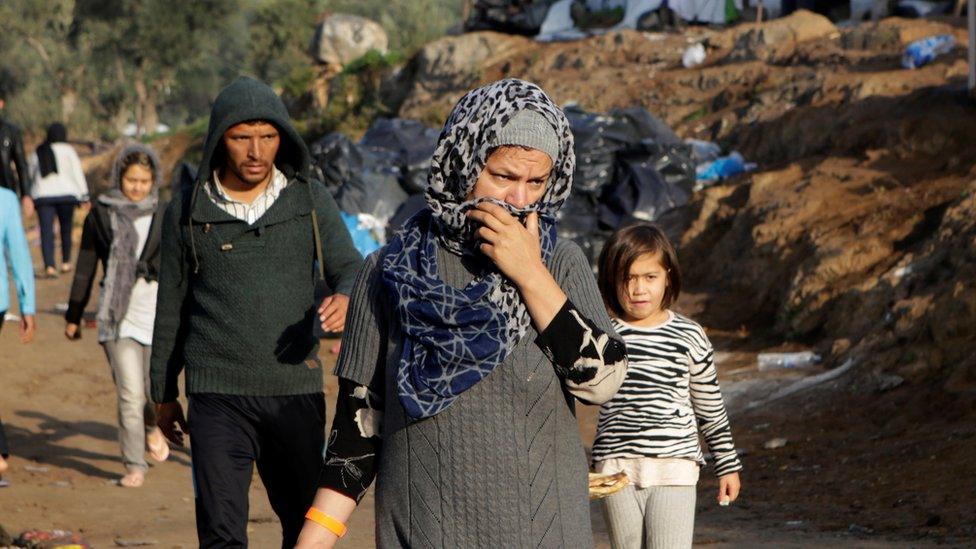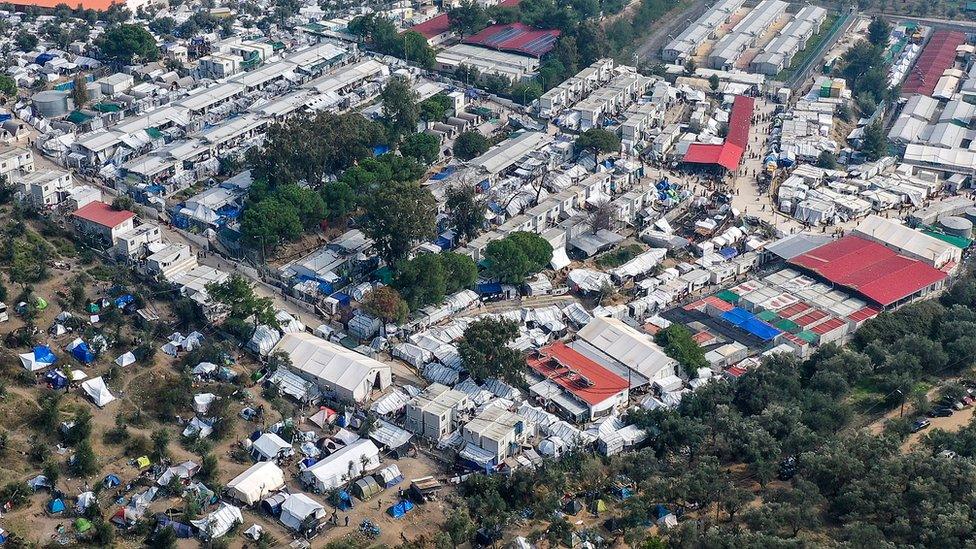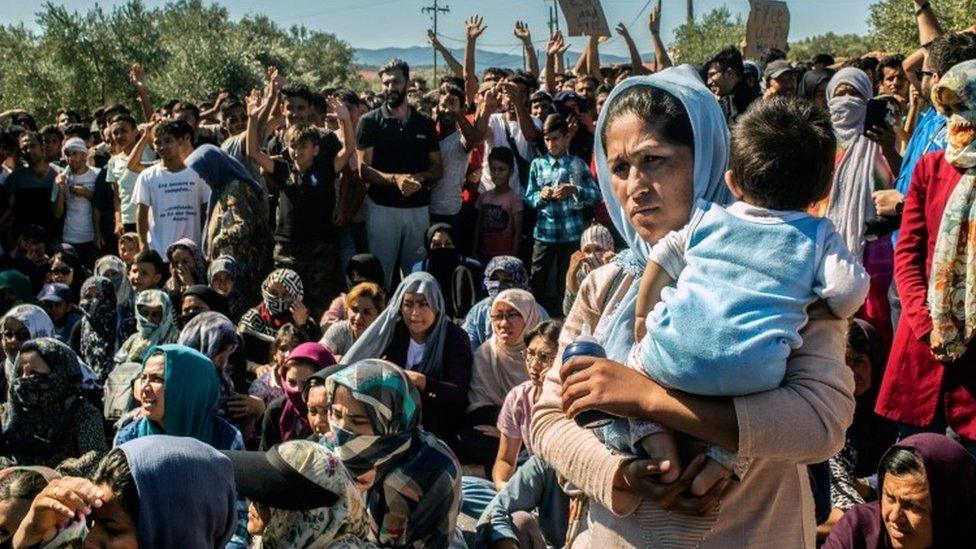Greece migrant crisis: 'Horrible' camps to shut amid influx
- Published

Moria on Lesbos is currently home to more than 15,000 people in a camp meant for fewer than 3,000
Overcrowded, open camps that have become home to 33,000 asylum seekers on five Aegean islands are to be shut down and replaced with closed centres.
Four or five new sites will be set up to house 1,000 to 5,000 people.
Conditions are so bad at camps such as Moria and Vathy that a Council of Europe commissioner spoke of an "explosive situation" and a struggle for survival last month.
Greece has seen a big rise in migrant numbers crossing from Turkey.
The proposed sites are being described as "closed pre-departure centres", an announcement which the government in Athens hopes will be noticed by traffickers and potential asylum seekers alike.
"A clear message should be sent to those planning or thinking of coming to the country illegally when they aren't entitled to asylum," said government spokesman Stelios Petsas.
The government is also promising tighter sea and land borders, and a faster asylum process.
How bad is the overcrowding?
The camps on all five islands off the Turkish coast are overcrowded. In September a woman died when a fire broke out at the Moria camp in Lesbos where more than 15,000 asylum seekers live on a site designed for fewer than 3,000.
Then clashes at Vathy camp in Samos sparked a fire that sent hundreds of people onto the streets.


In total, 33,659 people are housed in the island camps while another 3,549 are living in other facilities.
Lesbos has been most affected of the five islands in the eastern Aegean, as refugees and migrants have crossed the sea from neighbouring Turkey in the highest numbers since the migrant crisis of 2015-16. The majority of arrivals are from Afghanistan and Syria, external, according to the United Nations.
The past few months have seen a big increase in numbers, with 10,551 arrivals by sea in Greece in September and a further 8,996 in October.
Migrants at Moria camp struggle with the effects of tear gas in their camp
A year ago, the UN refugee agency urged the Greek government to move asylum seekers away from Lesbos, describing conditions as at "boiling point". At the time, there were 8,000 people living in the Moria camp.
At the end of October, the Council of Europe's human rights commissioner, Dunja Mijatovic, said the situation had deteriorated, external in the camps and urgent measures were needed.
Asylum seekers at Moria camp on Lesbos have complained of deadly violence
Highlighting a "desperate lack of medical care and sanitation", she said that on Samos, families were having to chip away at rocks to make space for shelters on hillsides.
How has Greece reacted?
The centre-right government that came to power in July promised to take a tough line as daily arrivals hit their highest since 2016.

The population of Moria camp has increased dramatically since the migrant crisis began in 2015
It has already announced plans to relocate 20,000 people to the mainland, with 10,000 whose asylum claims have been rejected facing deportation to Turkey by the end of 2020.
Ships carrying hundreds of people have been transported from Samos and Lesbos to ports near Athens and Thessaloniki in recent weeks.
Now, as well as closing the open camps like Vathy and Moria, the government says the proposed relocation of 20,000 people should be completed by early next year.
Hundreds more asylum officials will be recruited to speed up the returns process. The government also wants to beef up border controls as well as policing on the Aegean islands. A border guard will be created as part of a new border surveillance agency.
- Published1 November 2019
